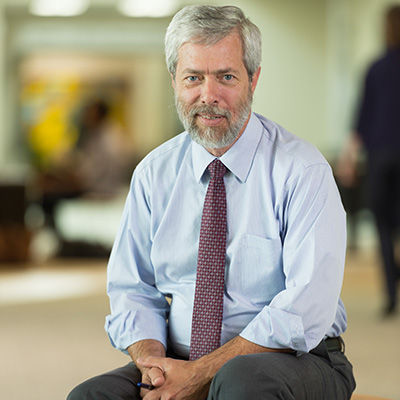The Ultimate Test of Hospitality: The Welcome to Those Who Differ with Us
Blog Tags
Hospitality means a generous welcome and attentiveness to those who are like us. For sure. And yet, it is also always and ever about a radical welcome to those who are different. Surely, this is the mark of hospitality: to offer this welcome to those who are other, those not part of our immediate circle, those who represent a different social, economic and ethnic background. And, thinking in terms of the church and the world, it is about the capacity of the church to offer hospitality to those who are not like us. We come to see that these differences are not a threat, but rather an opportunity for us to welcome others as Christ has welcomed us and, further, for us to engage those who might see life and work and relationships from a very different perspective.
Thinking in terms of concentric circles, then: we offer hospitality to the other—the stranger, the immigrant, the newcomer into our world. But, we begin with our own circumstances, our own circle, our own community. And by this I do not assume that our community is homogenous; I am assuming diversity. Surely, it is in offering hospitality within our own community, with all its diversity, that we begin to learn what it means to offer hospitality to others. We begin with our own circle—within our own church community, with colleagues in the workplace—and then, and only then, we know something of what it means to offer hospitality beyond the borders of our own community.
It only follows, then, that it is not a true hospitality when what is offered by a church community, for example, is only a “welcome” to those who look like those who are already a part of this church (socially, economically and otherwise). That is to say that the diversity within our community is the very energy that supports our hospitality beyond our own circles. Which means that we always come back to ground zero—and the extraordinary call of Romans 15:7 that we are to “welcome one another in the Lord” as we have been welcomed by Christ. And we can only appreciate this call in its context—the remarkable setting and set of circumstances that led the Apostle to this exhortation.
Romans 14 describes a congregation that is deeply divided, likely along Gentile and Jewish believers. They clearly have some fundamental differences of opinion that, it would seem, fell along these very specific lines: the Gentile believers held some things to be very true about the character of Christian identity; the Jewish believers, in contrast, saw things very differently. The specific issues, in themselves, are not the point. And in our reading this today, we might not fully appreciate why these issues mattered so much to them. Suffice it to say that these were not secondary or incidental questions: they differed on matters of substance that, for them, were non-negotiable in that they were a vital dimension of what it meant for them to be followers of Christ.
As the two issues are described, one reads Romans 14 wondering how the Apostle will resolve this debate. Whose side will he take? What is the right answer? Who has the correct view of the matters at hand? And what has to surprise us is that the Apostle does not settle the dispute with a simple declaration of who is right and who is wrong but, rather, calls for a generous spiritual response and a deference the one to the other. And it all leads to the call of Romans 15:7, that they would welcome one another as Christ has welcomed them. That is, that they would live or embody the Gospel towards those with whom they had these deep differences of opinion.
Could it be, then, that something is amiss when a congregation is homogenous—when everyone is “white, evangelical, conservative/republican” (or, you create your own category); where everyone with whom you live and work is of the same ilk—that is, you are on the same wavelength within the social, cultural, ideological, political sub-culture as those with whom you meet? Could it be that God will call us into circles and circumstances where those with whom we worship see things very differently? Can Liberal/NDP/Green and Conservative Christians worship together in Canada? Can Democrats—both moderate and progressive—and Republicans be part of the same congregation in the US? Can we tolerate this diversity, and not just tolerate it, but come to see it as a point of strength? In our deeply polarized world—where the Canadian Parliament and the US Congress seem incapable of bi-partisan legislation, where the ideological left and right cannot bear to accept the existence of the other, where principled compromise is viewed as an oxymoron—can or could it be that the world looks at the Christian community with perplexity and wonder because they see that we can differ with one another on substantive matters and still, and yet, “welcome” one another?
We will differ with each other. That is fine. But let us also always remain in a learning posture—eager and willing to listen to the other. Let us also resolve that our engagement with the other will be marked by mutual respect and mutual regard. Let us find ways to foster common ground.
Are there limits to this hospitality? For sure, as already indicated in a previous blog posting. We are not asked to seek mutual understanding and learning from someone who threatens us physically or uses emotional blackmail or manipulation in the way that they engage us. Having said that, let’s not overstate the “threat”: Gentile Christians in Roman (see Romans 14) might have concluded that the Jewish Christians “threatened” their very identity as authentic Christian believers. And yet, they were called to welcome the other. And surely we can and must do the same.

